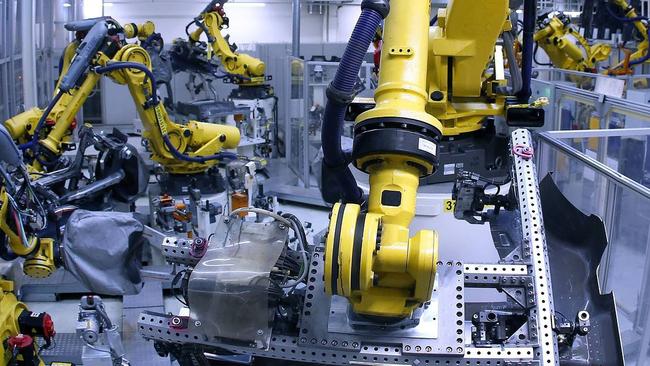Australian business undergoing state-imposed change
Australia is moving towards German-style business rather than the US-British system we’ve embraced for the last century.

While the US under President Donald Trump is stepping back from globalisation, Australia is undergoing its own state-imposed fundamental change in business.
And that change is a form of isolationism that is just as profound as that taking place in the US.
Step by step, Australia is moving towards a Germany-style system of business rather than the American/British system that we have embraced for the last century.
Unless business responds, this change will make it a lot harder for Australian companies to earn their former level of profits.
In turn, as I will explain below, it is likely to hasten the pace of the new industrial revolution which I described earlier this month, with much greater investment in labour reduction technologies led by the companies that are on the front line of Germanisation —banks, mining companies and manufacturers.
When we look back we may see that the banking royal commission and the ALP’s deputy leader Tanya Plibersek forced Australian companies into much faster labour and cost reduction.
On its own each event seems minor and its only if you step back that can you see the magnitude of Australian change.
We will start with capital formation where once the great MLC, AMP, Colonial, and BT as privately-owned institutions dominated the scene. BT is fine but the others are going to be greatly reduced in power by the union-employer group controlled industry funds. There is also a switch from Sydney to Melbourne.
The shift to industry funds, first via the royal commission impacts and then possibly by an ALP government is a huge change in the source of Australian equity capital.
If the ALP gains power it plans to shift money from self-managed funds to industry funds via franking credits. In effect it is telling retirees that if you want franking credits, use the big funds.
And the extent of banking change goes much further. Banks will be supervised on a day-to-day basis in terms of both the risks they take and their ethics.
Their lending security levels are also to be subject to much greater control.
It was aggressive home lending that gave Australia its high rates of home ownership. Home ownership is much lower in Germany.
Labor wants to adopt legislation that would require companies with more than 1000 employees to publicly release data on how much they pay male and female staff.
Tanya Plibersek says the policy would impact around 700 companies and more than three million workers. She also said that Labor would change the Fair Work Act to remove a ban on workers telling colleagues how much they are paid.
The state is attempting to play a role in salary-setting and staff structures and as they do they hasten automation.
The Federal Court’s landmark ruling that a truck driver who was employed at mine sites on a casual basis is entitled to annual leave is another step along the path to a very different business structure with less labour flexibility. This ruling will be used by the CFMEU to change their existing flexible employment arrangements
And taking the movement one step further, Energy Australia will not appeal against the Federal Court’s ruling that maintenance workers at the Yallourn power station in Victoria are entitled to casual loading rates for overtime work. The Fair Work Commission had initially ruled in Energy Australia’s favour, but the full bench subsequently overturned it and the power company failed in two bids to have the original ruling reinstated. That will again create less flexibility.
On the automation front, the combination of the squeeze on bank lending and tighter lending rules is going to force banks to do what they should have done years ago—upgrade their systems.
But upgrading systems in the current state of technology will mean substantial labour shedding.
The current new rules on labour flexibility may see different arrangements allowed by Fair Work which will help restore some labour flexibility. But it will also accelerate the push to greater mine and manufacturing automation. Staff employment will be concentrated on maintenance areas.
In other words companies will try and mitigate the much higher costs being imposed via labour shedding and the greater use of computers and artificial intelligence.
Germany has always been at the forefront of efficiency via plant investment, partly because of its rule-based business economy.
But Germany has a weapon to offset its rule-based commercial system that we do not enjoy -- a euro that is much lower than the level of a stand-alone German mark.
The addition of Italy, Greece and eastern European countries to the European Union has reduced the value of the Euro and greatly benefited Germany.
While we don’t have that advantage we seem to be attempting to create a lower currency by enormous spending on defence and on government handouts.



